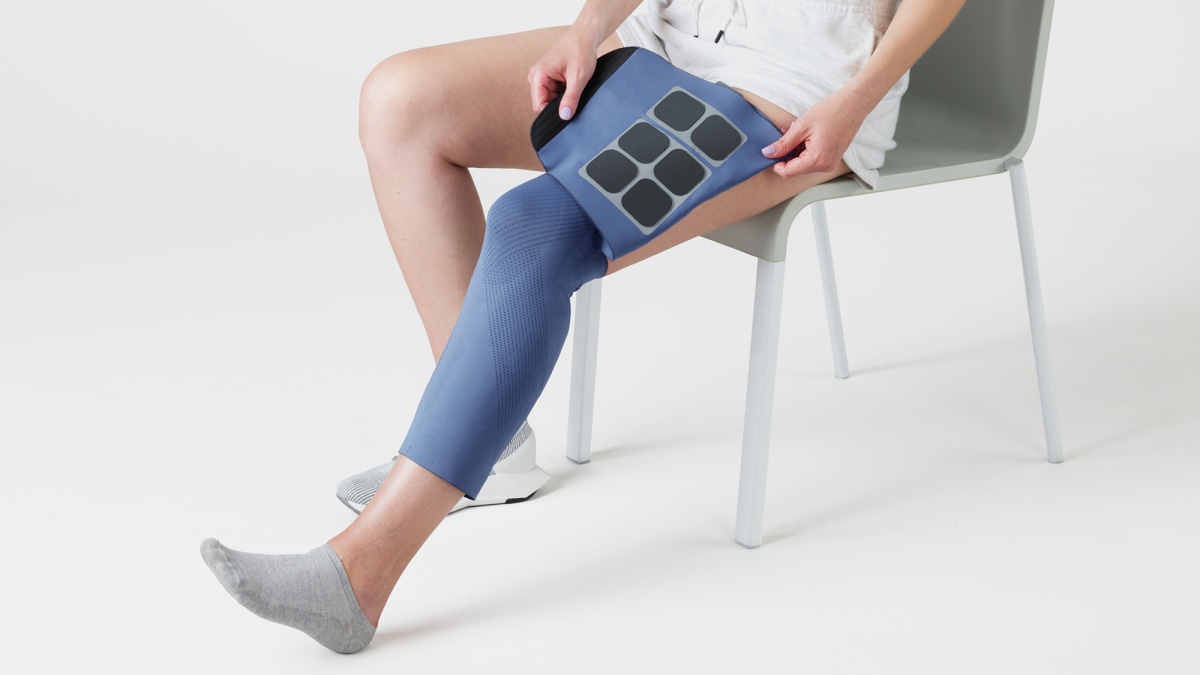[ad_1]
When his young daughter was diagnosed with cerebral palsy more than a decade ago, engineer Jeremiah Robison happened to be working on wearable technology in Silicon Valley. As his daughter struggled to walk, he kept thinking about how he might help make it easier for her to get around. “The best that technology had to offer was crutches, walkers, and wheelchairs,” he says.
He eventually started working on something new: clothing embedded with sensors that could monitor her gait and small electrodes that could stimulate muscles in her legs to help take each step.

[Photo: Cionic]
The inspiration came in part from physical therapy appointments where a therapist helped his daughter walk. “Her therapist would wire her up with electrodes, and then would walk behind her with two buttons to basically press when they wanted a certain muscle to fire,” Robison says. At another appointment, doctors used sensors to analyze her gait. He realized that it might be possible to design personalized clothing that combined both approaches, and that could be worn all the time.
A basic wearable device designed for stroke patients already existed, but could only stimulate a single muscle, required each electrode to be manually placed, and it didn’t have sensors that could measure how someone’s muscles were responding. (Some of the designs, he says, also looked a little like prison bracelets, not clothing.) In 2018, he went into his garage and began prototyping bionic tights that targeted all major muscles in the legs.
By the end of 2019, his new startup, called Cionic, had a working prototype. His daughter was his first product tester, and when the pandemic hit, temporarily became his only tester until larger trials could resume. By 2021, the final design, called the Neural Sleeve, had been submitted to the FDA. It was approved in 2022, and earlier this year, it came to market. Depending on someone’s needs, it might be worn on one leg or both.
Many of the first customers have multiple sclerosis; others have cerebral palsy or are recovering from a stroke. “One of the big things that we hear from our patients is how tremendously exhausting it is to walk when you have to fear falling at every step,” says Robison. With the new product, he says, “they’re able to walk further with greater endurance, carry on a conversation with their loved one, and able to do their activities of daily living. It seems like something that we take for granted. But being able to walk is such a fundamental piece of independence.”

[Photo: Cionic]
The technology can help as soon as it’s worn. When a mother in her early thirties with multiple sclerosis came to an appointment to try the device, she arrived in a wheelchair, and said that in a physical therapy appointment she could normally walk about 20 feet. “We got her suited up,” Robison says. “Then she started walking with a cane, and she was like, ‘Wow, I don’t have to think about walking.’ Then she kind of tossed her cane at her PT and started cruising and going out in the hall. We just saw a video of her. She’s been with us just over six months and she’s literally playing in the park with her kids.”
Right now, the device isn’t typically covered by health insurance. To help make it more accessible, Cionic decided to charge in installments; customers pay $200 a month, with the ability to cancel if they don’t like the device, for a total of 12 months. “I’d tried a number of different things for my daughter that were pay upfront—$5,000, $10,000 medical devices, but no try-before-you-buy or money back guarantee,” says Robison. “If you think about the limited dollars to spend on health care, it’s a really poor model.”
The startup is one of the first four companies to be backed by a new venture capital firm called Enable Ventures. The firm, focused on assistive technology, recently got a $5 million investment from the insurer UnitedHealth Group.
“What we’re seeing in the lens and focus of our firm is that there is a unique market opportunity to arm people with the tools they need to uplift their self-determination, their independence, and their autonomy in our society through technology,” says Regina Klein, managing partner at Enable Ventures.
The firm has also invested in Ava, an app that uses AI to make real-time captions for conversations between Deaf and hearing people. It also backed Inclusively, a job platform that helps match job seekers with jobs that offer accommodations for disabilities, and Daivergent, an online learning platform for people who are neurodiverse.
The need for better technology in this space is large and growing. By 2050, for example, a fifth of the U.S. population may have some type of limitation in mobility.
[ad_2]
Source link